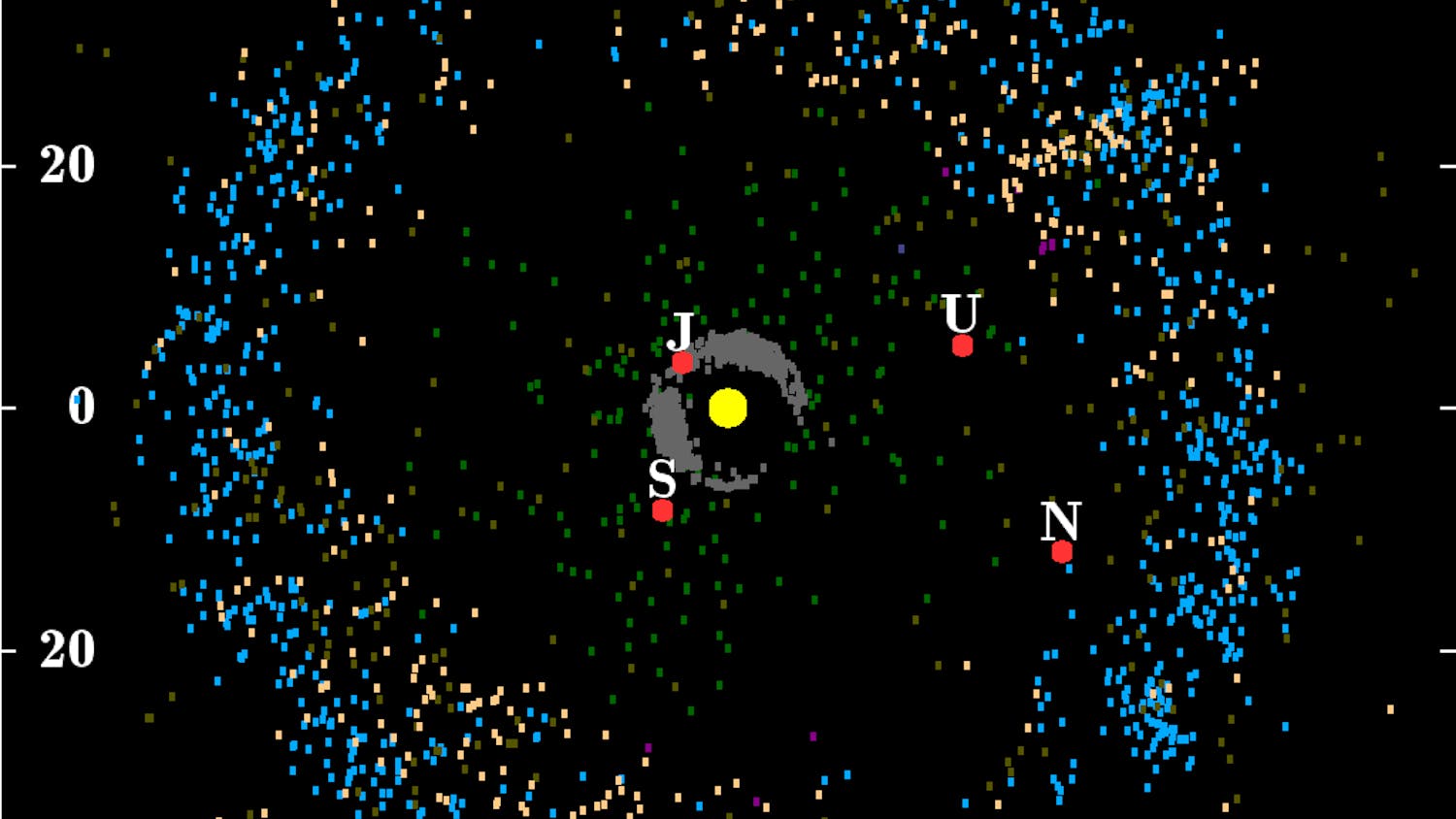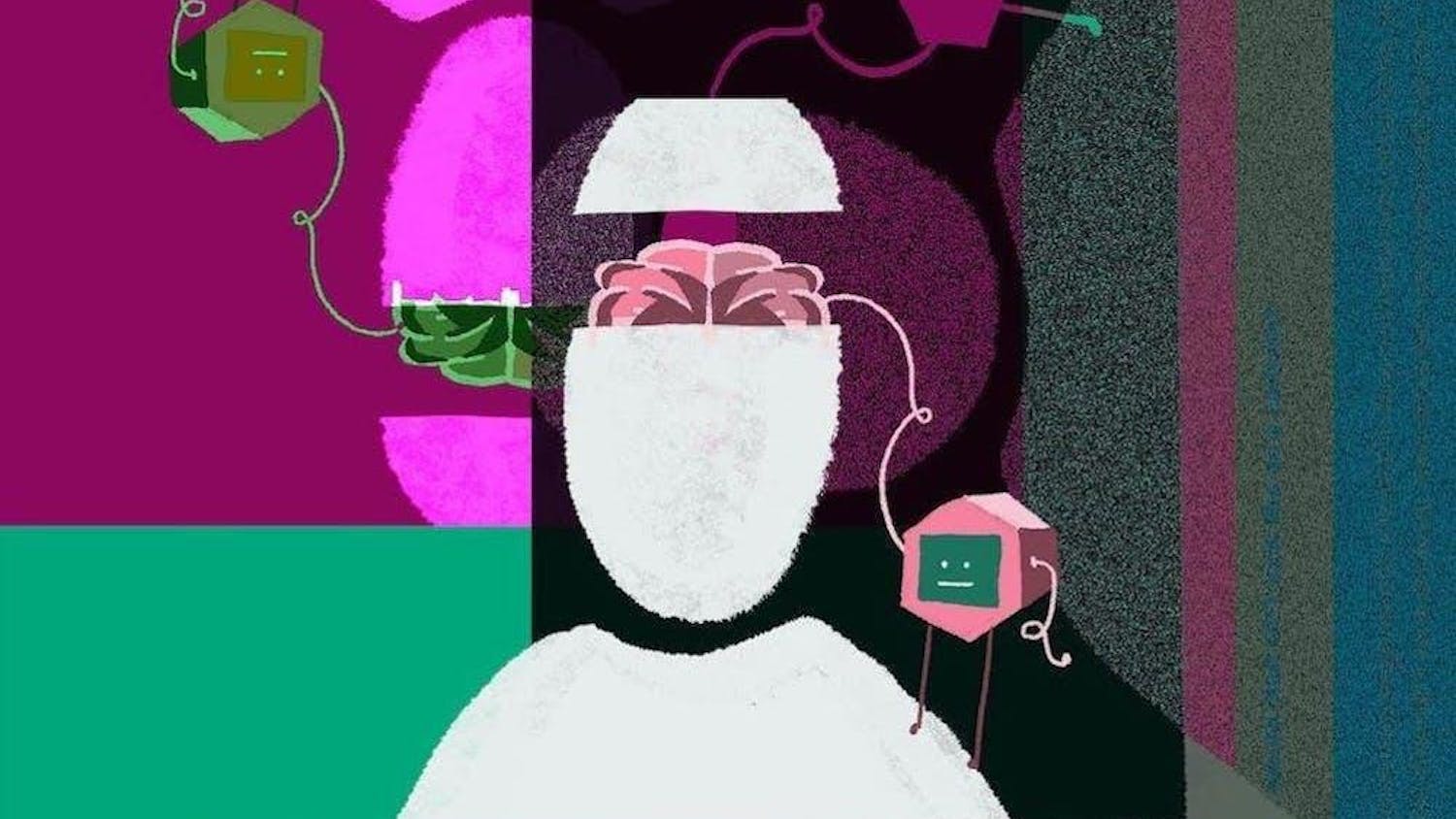Renowned science writer Carl Zimmer spoke about whales, viruses and the current state of journalism Thursday night, telling an almost-full Metcalf Auditorium "how an English major ended up with a tapeworm named after him."
Professor of Biology Ken Miller '70 P'02 introduced Zimmer as "the best, period." Zimmer is "somebody who always gets the science right," Miller said.
When scientists who were impressed by Zimmer's second book, "Parasite Rex," discovered a new tapeworm, they named it "Ancanthobothrium zimmeri" in his honor.
But Zimmer's interest in biology was sparked by a much larger creature. "My science career got its start with whales," he told the audience. While studying English as an undergraduate at Yale, Zimmer said he enjoyed the detailed descriptions of whale anatomy in "Moby Dick." But it was not until after graduation that he began to think about a career in science writing.
A few years out of college, Zimmer tried to find a job at a magazine in New York City, he said. After a brief stint as a copy editor for Discover magazine, he became a fact-checker, which he said was a "wonderful way to learn how to write."
Zimmer said he was drawn to writing stories about biology. "The natural world is so marvelous and strange," he said. He spoke of his early fascination with the whale - one of the few sea-dwelling mammals - and his "obsession" with parasitic wasps.
"You can't not write about things like this," he said.
He said he became a science writer at a very exciting time - the past 20 years have seen a revolution in biology, with advancements in genetic sequencing that enable a deeper understanding of the world of viruses.
The sheer number of viruses - 10 to the 31st - is hard to communicate, he said. If you stacked every virus on Earth, the stack would extend for 100,000,000 light years. "I have triple-checked this," he said to an incredulous audience.
"As a science writer, you try to come up with metaphors and just try to find ways for people to understand our very weird world," he said.
As science has changed, journalism has, too, Zimmer said. The Internet, especially Craigslist - which has stripped newspapers of almost all classified revenue - has turned a once "thriving industry" into a "shadow of its former self," he said.
The Internet also perpetuates a dangerous cycle of scientific misinformation, he said. Zimmer displayed a chart that showed how scientific language has different meanings for scientists and the general public. For example, non-scientists may interpret "manipulation" to mean "illicit tampering," when scientists mean "data processing."
Zimmer spoke of Oxford University neuroscientist Susan Greenfield, who made the unsubstantiated claim that sites such as Twitter and Facebook are causing an increase in autism. "I point to the increase in autism, and I point to Internet use. That's all," she told the Guardian.
"Journalists," Zimmer said, "have a hard time resisting the Greenfield catnip."
But the Internet and social media sites "can actually be used to help rectify some of the misunderstandings that are out there," Zimmer said. He posted a tweet mocking Greenfield with the hashtag "greenfieldism" and within a few days, there were around 1,000 similar tweets posted. "Twitter is not the downfall of journalism," he said.
Zimmer ended his talk by playing a clip of an interview he did for Radiolab, a creative podcast that integrates interviews with scientific experts, commentary and entertaining noises.
In response to a question about the future of science journalism, Zimmer said, "We need people to be creative with the kind of tools that there are."
Students were largely impressed by his talk. Anastasia Rahlin '12 said she has considered becoming a science writer and has gone to a number of presentations about the field before. "I think he's one of the best science writers in the field right now," she said.
Both Rosalyn Price-Waldman '14 and Pathikrit Bhattacharyya '14, who said they want to pursue biology, said it is great to know that there are people as talented as Zimmer covering the work in their field.
"I feel like he is just sort of living the dream," Price-Waldman said. "He's making this passion accessible to everyone, which is incredible."
Bhattacharyya, a Herald photographer, agreed. "Our eyes light up when we look at that stuff," he said referring to some of the biological images Zimmer displayed. "When we can talk about it and see that same light in someone else's eyes, it's so much more amazing."




